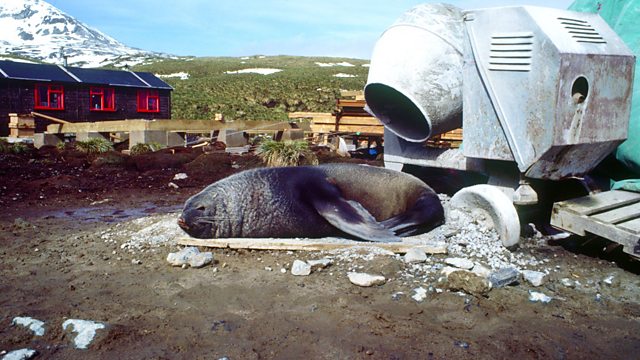Orangutans and Drones
Can we share the planet with orangutans, and how can drones help us? Will drones revolutionise biological field work and help gather vital information about the apes' behaviour?
Orang-utans live in the peat rainforests of Malaysia and Indonesia. It can be tough terrain to travel through on foot so studying and surveying wild orang-utans is difficult and dangerous. Can drones help to answer questions about the number and distribution of the 'people of the forest' and monitor illegal logging of this endangered ape's habitat? This week Shared Planet explores the potential of drones to help us share the planet with orang-utans - but also explores the possible pitfalls of using this controversial technology.
Last on
More episodes
Dr Helen Morrogh-Bernard

Helen has worked in the Sabangau peat-swamp forest since 1995 where she identified the world鈥檚 largest population of orangutans and then helped to stop illegal-logging and secure their protection. With a small and dedicated research team, she habituated 25 individuals and collected data on orangutan activity, ranging, social and feeding behaviour, identifying how orangutans were surviving in and utilising a logged forest.
She now collaborates with a wide-range of scientists and research projects, comparing orangutan behaviour between geographical locations, habitats and islands, helping to build up a complete picture of the ecology of this cryptic ape. Her personal research interests focus on female range development, dispersal, male-male interactions, self-medication and the unique cultural traits of the Sabangau orangutan population.
Helen completed a PhD at the , University of Cambridge in 2009, and continues to oversee the orangutan behaviour research in Sabangau, whilst also remaining committed to conservation and protection of this critical habitat. 聽
Professor Serge Wich

He also studies primate communication and analyses the meaning and function of calls to understand whether they are learned and what the geographic variation of calls is. This has the ultimate aim of informing theories on how human speech evolved.
In addition, he am collaborating with to develop and use 'unmanned aerial vehicles' or 'drones' for conservation and ecological research. This project has put in place drones that fly at locations Africa, Asia, and Europe.
Dr Chris Sandbrook

His current research activities includes investigating trade-offs between ecosystem services at the landscape scale in developing countries聽as a co-investigator in聽.
He also investigates the role of values and evidence in shaping the decisions of conservationists and their organisations聽with particular respect to the use of market-based mechanisms in conservation, and the role of evidence in conservation, including evidence for biodiversity-poverty linkages.
He also analyses the social and political implications of new technologies for conservation and has聽co-founded the platform, building on a Cambridge Conservation Initiative (CCI) small grant. With Bill Adams, Chris is working to develop 'Race the Wild' - a mobile phone app that will allow the user to virtually 'race' against wild animals that are tagged with GPS tracking devices.
He is also interested in the potential social and political implications of the increasing use of 'Unmanned Aerial Vehicles', or 'drones', in conservation, particularly in the global south.
罢飞颈迟迟别谤:听
Broadcasts
- Tue 9 Dec 2014 11:00成人论坛 Radio 4
- Mon 15 Dec 2014 21:00成人论坛 Radio 4
Learn about habitats with The Open University
Explore the twists and connections of natural life in four different UK habitats.

